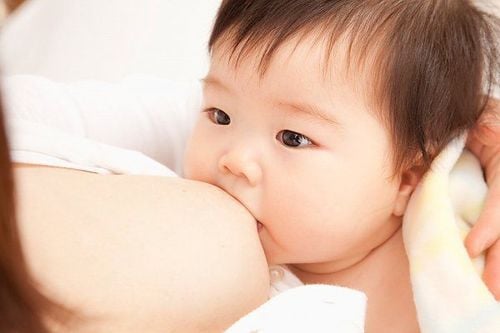This is an automatically translated article.
Currently, many young mothers often use whey to start solids for their babies. Because they believe that this type of food includes nutritional ingredients that can provide adequate nutrients to help children develop well. However, if you abuse this type of food, it can bring bad effects to your child.
1. Myths about nutrients in whey
According to mothers, whey belongs to the group of foods that help children grow up quickly, develop outstandingly, and be intelligent... When preparing to feed their children weaning, mothers often use whey to supplement their meals. baby's miles, on the grounds that whey is distilled from the best of milk. But in fact, the nutritional value of whey for babies is not as expected.
According to a nutritionist, whey consists of: The fat component of milk, which is then added with calcium, thickener and some other substances to be processed into commercially available whey cans.
Milk has a nutritional composition rich in fat and calcium, so it is considered quite suitable for cases of malnourished children. As for normal children, whey can be used, but it is not a complete substitute for milk. If we compare the nutritional composition of yogurt and whey, it shows that yogurt has a superior nutritional profile.
Real whey is obtained from the process of centrifugation of fresh milk. Then, with about 100kg of fresh milk, it will give 1.25kg of whey. However, the whey products being marketed have a very low percentage of whey, which mainly consists of whole milk with content from 50 - 60% or even up to 90%.
In addition, in the whey products sold on the market, there are other ingredients such as: coloring agents, cereals, flavorings... According to the analysis of experts, these whey products are are not “wheat” in the true sense of the word, because these products have been mixed with large amounts of substances other than real whey. So, it is not always good to eat a lot of whey.
2. Mistakes when using whey for babies to start the process of weaning
Milk can help children gain weight, but not the normal weight gain that can cause obesity in children.
If the mother wants to use whey for the baby, it should be used when the child is over 1 year old. And should give the child whey as a snack, use this food from time to time, not as a nutritious food that needs to be supplemented continuously.
"As for children under 1 year old, should we use infant whey or 6-month-old baby whey to replace special breast milk?". Absolutely not because whey does not contain all the nutrients found in breast milk or formula milk, and whey has a fairly low protein content.
whey should be used properly for each child to be able to promote its advantages. Because the nutritional composition of whey has a high fat content, it provides a lot of energy for children, so it is very necessary for children experiencing conditions such as: Underweight children, malnutrition, newly ill children get up. With these young subjects, parents should give their children whey in their snacks.

Nếu mẹ muốn dùng váng sữa cho bé thì nên dùng khi trẻ được trên 1 tuổi
3. How appropriate is it for children to eat whey?
The amount of whey used in a child's meal will depend on the age, weight, and type of whey used. On average, children aged 6 to 12 months can eat a box of whey per day.
For children over 1 year old, you can eat 1-2 boxes/day depending on the child's tolerance level. Parents should not give their children too much whey, which can lead to bloating and diarrhea due to the high fat content in whey.
Children who should not use whey include: Children under the age of 6 months, children who are overweight and obese, children with diarrhea and children with signs of allergy to cow's milk.
When using whey for babies, it should be noted that whey belongs to the group of perishable foods that need to be stored in the refrigerator, where the temperature is relatively stable. You should not leave whey in the door of the refrigerator, because when opening the refrigerator often, it will not maintain a stable temperature, affecting the quality of whey.
In addition, when buying whey, it should be used as soon as possible and should only be purchased at reputable establishments with good storage conditions, in order to ensure the quality of whey.
To improve taste, eat well, achieve height and weight in accordance with and exceed standards, have a good immune system, strengthen resistance to less sickness and less digestive problems... children need supplements add essential micronutrients such as: Zinc, selenium, chromium, vitamins B1 and B6, ginger, acerola fruit extract (vitamin C),...
Also according to leading nutrition experts, parents need Be calm and persistent when adding nutrients to your baby, even through food or functional foods. In particular, the use of functional foods should choose those of natural origin that are easily absorbed, do not allow simultaneous use of many types or continuously change the types of functional foods. Besides, nutrition experts also emphasized on the role of biological zinc; Parents should learn and supplement zinc for children properly at the appropriate time, to avoid zinc deficiency affecting the comprehensive development of children.
To have more knowledge about nutrition in the process of raising and caring for children of each age, parents should regularly visit the website https://vinmec.com and make an appointment with doctors and specialists in Pediatrics - Nutrition Top care when you need advice.













